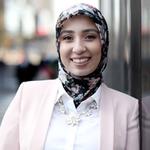Why Community is Such an Integral Part of Islam and Muslim Life
Faith
|
Oct 18, 2019
|
7 MIN READ
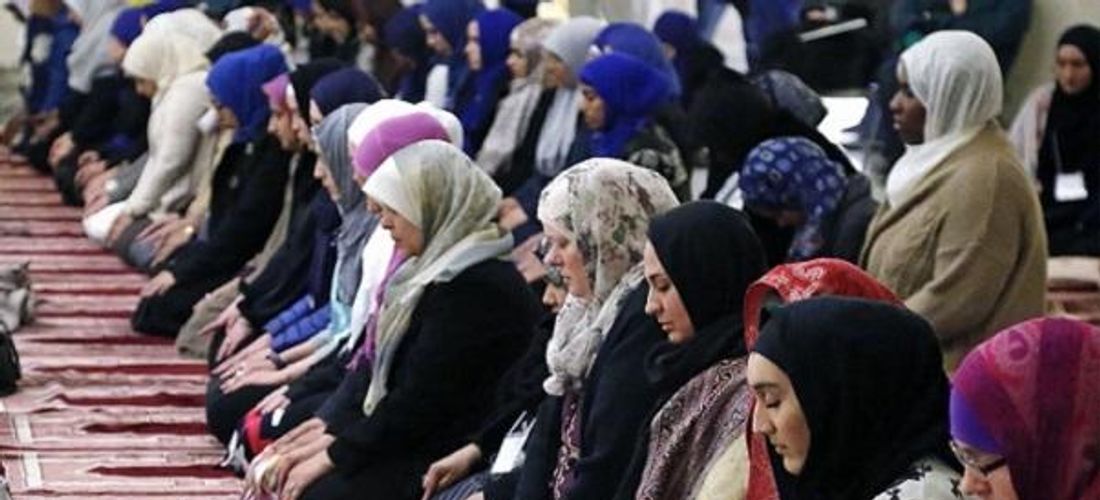
Community has been an integral aspect of Muslim life and culture from the onset of Islam. In fact, when asked why the Prophet (S) loved his first wife, Khadija so much, he responded, "She believed in me when no one else did." This points to the human need for connection – and how far it goes towards our emotional and mental wellness.
When Islam was still new to Makkah, and Quraysh was hell-bent on prosecuting anyone who believed or followed Prophet Muhammad (saw), Muslims used to meet in private in the home of al-Arqam to read and learn the Quran. The Prophet (saw) kept a close circle of friends and confidantes around him who played a key role in preserving his life and his teachings.
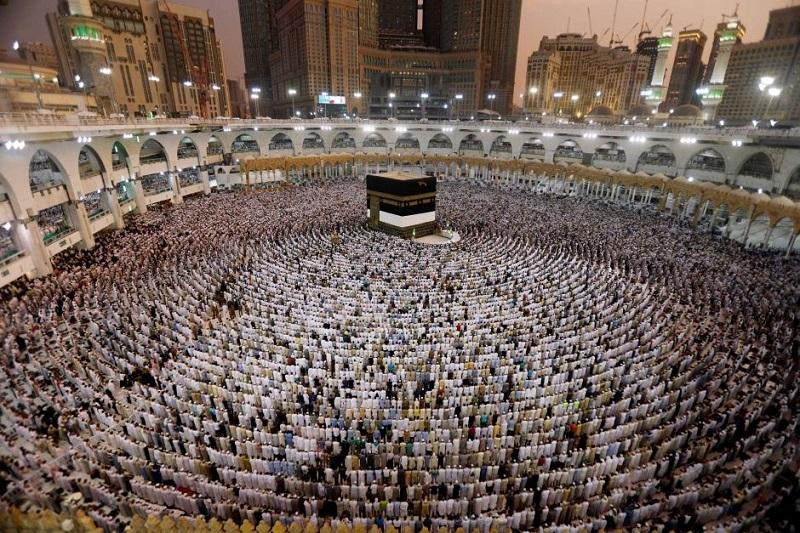
Image source: ABC AU news.
And, perhaps the most beautiful example of community in our history is when the Muslims migrated from Makkah to Madinah, and the Ansar (the people of Madinah) literally shared their homes, money and lives with the Muhajiroon (the migrants who came from Makkah). That is one of the most selfless acts a group of people could do for one another. This is all to say that community and community support is held in the highest regard in Islam and is something we all should prioritize in our lives.
Prayer in Congregation as the Basis of Islamic Community
One of the first things the Prophet (S) did upon moving to Madinah was building a masjid to become the center of Muslim life and community. Salah – the MOST crucial act a Muslim must do – is a deeply personal one-on-one time between a Muslim and his Lord. However, it is strongly recommended to be performed in congregation as well.
Reflect on that for a minute; why would Allah (S) ask this of us? What are the repercussions on the believers for doing so? Prayer, along with Hajj, is one of the most beautiful displays of humanity (and equality). A king is no different than a servant, a poor man no different than a rich one. We all line up facing the same direction, shoulder to shoulder, facing our Creator. All boundaries are null and void, five times a day. What a beautiful reminder of our shared faith, morals and ideals, and what a wonderful way to keep ourselves in check, to be aware of what our brother and sisters might be going through, what their needs are, and what we can do as a collective to uplift each other and the Muslim ummah.
On the flip side, loneliness is one of the biggest plagues in our society. It changes our thoughts and increases our levels of cortisol (stress hormone), which erodes our quality of life, sleep and overall health and wellbeing. It can affect our judgment and drive us to the brink of suicide, bringing on a crisis and even violence. In a world where we are ever connected, we are increasingly disconnected, finding ourselves without a community, without a "village," and without even a large enough circle of friends.
But ... imagine a world where at least once a day, you had the opportunity to connect with a brother or sister in faith. Where the girl who made the decision to take off her hijab can still walk into her masjid and get the same enthusiastic "Salaam!" she used to get when she wore it. Where the boy who did drugs earlier this week can still feel like he can turn to Allah (S) amongst his brothers in Islam. Where the woman who just miscarried can find love and support on any given day at the majid. Where the man who just lost his job and has no family around can find compassion and maybe even some comic relief amongst his congregation to make a hard day a little less hard.
That world is designed to exist in our masajid and beyond. Think about that. I'm not delusional enough to think that it always does exist, but I am ever hopeful that it can, and will. It's up to us – and I think it's achieved by example. Be what you wish for your congregation, and I promise you the effect will trickle through.
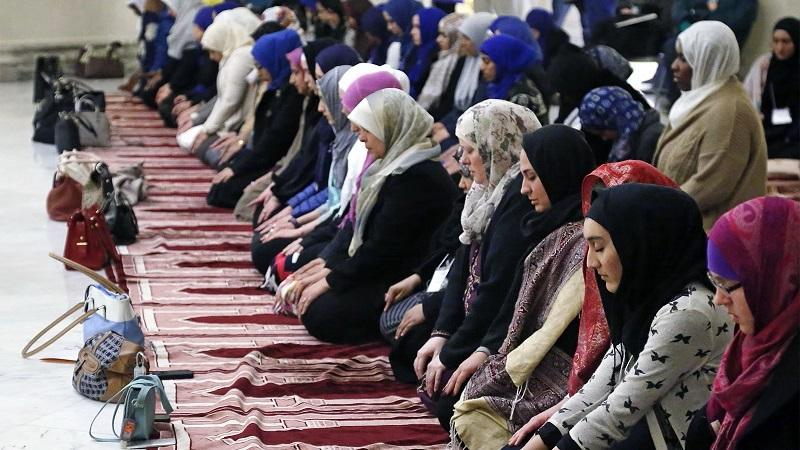
Image source: Religion News Service
Our success as humans, and as Muslims, lies in the following hadith. The Prophet (saw) said:
"A believer to another believer is like a building whose different parts support each other.” The Prophet then clasped his hands with the fingers interlaced while saying that.” (Bukhari) He also said: “The believers in their mutual kindness, compassion and sympathy are just like one body. When one of the limbs suffers, the whole body responds to it with wakefulness and fever." (Bukhari and Muslim)
And so, performing salah as it is recommended, in congregation, is the ultimate pillar of community. In fact, most of our Islamic rituals and worship is done in congregation; salah, Jumuah prayer, Eid prayer and sermon, Janaza prayer, Azza (three days of mourning and gathering to pray for the deceased), visiting the sick, breaking our fast, hajj/umrah, marriage, Aqiqah (slaughtering of a sheep to feed one's loved ones and give to charity upon birth of a child), just to name a few. Islam brings us together for every single milestone or life event that can happen by design. We were created as humans to thrive on being social and positively interacting with one another, NOT to live our lives in solitude.
To be clear, ANYONE who embraces Islam is a member of the Muslim ummah. It is, therefore, incumbent on us to maintain spaces that are welcoming and inclusive to everyone, no matter what age, race, gender or mental health.
In building community, the Prophet (saw) makes it a point to even declare that our brothers and sisters in Islam have rights over us. Abu Hurayrah said: I heard the Messenger of Allah (blessings and peace of Allah be upon him) say:
"The rights of one Muslim over another are five: Returning the greeting of salaam, visiting the sick, attending funerals, accepting invitations, and saying yarhamuk Allah (may Allah have mercy on you) to one who sneezes." (Al-Bukhaari (1240) and Muslim (2162)
Establishing Muslim Communities in America
As Muslims living in the United States of America, we're sometimes faced with an identity crisis of sorts; we're never American enough, never native (to our countries of origin) enough. We're not "Western" enough, nor are we "Eastern" enough. We're assimilated, but we're also not. We're born Muslims, or we're converts, we're first generation, second generation, and even native-born citizens of this country, and so we don't always feel ownership to it.
It's time we shed that insecurity and understand that we belong in this country as much as the next person. Only then will we wholeheartedly invest our times, lend our voices and take part in our country's politics.
Islam actually encourages people to be active citizens in whatever land they inhabit. This means observing and upholding the laws of the land and actively engaging and working to meet each other's needs. In a recent article on activism written for Muslim Matters, Omar Suleiman writes,
"The Prophet said, 'Find me amongst the oppressed. Are you given aid and support by Allah except by how you treat your most vulnerable?” I believe that we as Muslims, especially those who claim orthodoxy, should assert ourselves in these areas. This doesn’t mean that I think this is the only area in which Muslims should be active. Different people should work in different areas of good, and not undermine one another. Good efforts should be complementary to each other.'"
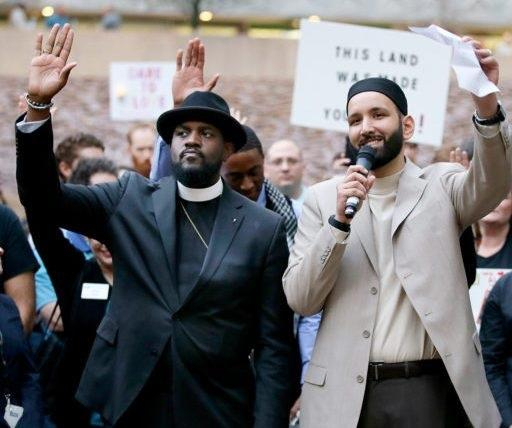
You do not need to do something grand, such as run for office, in order to be an active citizen of this country. It starts at home and then extends to your family, your neighbors, your town, your masjid and your immediate community.
Operating with an Abundance Mentality
Last weekend, I had the privilege of traveling to Chicago for the sixth and seventh events in our Changemakers Tour. Finding a host for our events is rarely difficult. In fact, our hosts tend to be women whose homes are "communal" – they often are the designated gathering space for large groups of people to get together for the sake of Allah (S). They host halaqas (intimate Islamic classes), qiyams, hijab celebrations, interfaith dinners, Eid parties, just to name just a few. The wonderful women who've prepared food for us do so out of love. The barakah (blessings) can be felt – and our tour and their communities would not be the same without them.
It is these people, who operate with an abundance mentality instead of a scarcity one, who truly shape our Muslim communities, especially in West. Allah (S) blesses each of us with different things, and it is our duty to use those blessings to serve our communities instead of tucking them away and hide them out of fear of envy and jealousy. In fact, part of gratitude to Allah (S), after worshipping Him and thanking him for our blessings, is serving our community. Zuhayr ibn Abi 'Alqamah reported that the Messenger of Allah (saw) said,
"Verily, Allah Almighty loves to see the traces of blessings on his servant. He does not love one who wallows in misery and pessimism."
Secluding ourselves in our homes and tending only to our personal affairs will get us nowhere. It will also lead to a miserable life lacking in barakah (blessings) from Allah (S). We are discouraged from apathy; it only leads to personal and collective demise. When we say the shahadah, as Muslims, it is not enough to just believe. We must also take action – and this extends not only to personal ibadah, but our duties to our communities as well. Even when we feel we have little to give, there is much we can do for each other in a variety of ways, from kind and caring conversations to volunteer work to hosting friends and much more.
(Of course this pertains to those who are able to engage with community. Certainly there are those of us dealing with difficult situations, illnesses or other things who cannot or are not able to engage with surrounding communities.)
This is what it means to live a Muslim lifestyle. To foster community, to enjoin what is good, to elevate our standards, care for the needy, and ultimately bring love and joy to each other in a world where misery is too much the norm.
Subscribe to be the first to know about new product releases, styling ideas and more.
What products are you interested in?

